The evaluation of presidents
Editor's Note WHO IS a president? He or she is the head of a republican state. In Korea, several people have been in charge of president from the first president, Rhee Syng-man since 1945, when a government was established. However, nobody was a perfect president. Classification of Respondents Total 1,496 Gender Grade University
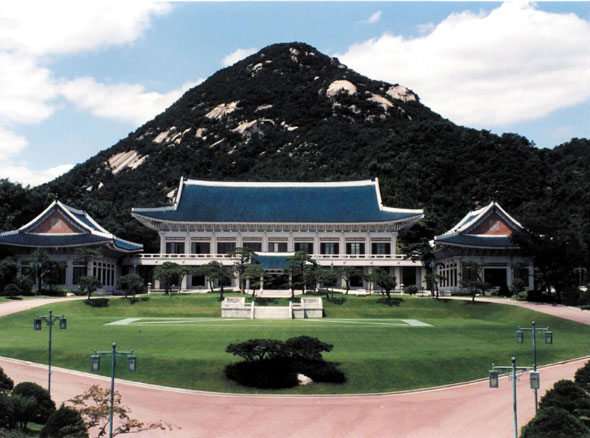
The present president, Roh Mu-hyun, was elected at 2002 president election by supporting of the twenties and thirties generation. Announcing and carrying out the many kinds of policies, he does not have a good reaction.
In this month's "Cover Story", The Yonsei Annals researched the evaluation to the former presidents and present president's facing problems of not only Yonseians but other five university students. This column will give chances to think about the president and present government to readers and other politicians.
By Son Min-kyung,
Reporter of Research Div.
Male 705 / Female 777/ Unidentified 14
Freshmen 653 / Sophomore 271 / Junior 241 / Senior 287 / Unidentified 44
Kyung Hee 311 / Korea 162 / Yonsei 236 / Ewha Womans 265 / Chung-ang 290 / HanYang 219 Unidentified 13
THE FIRST president of Korea, Rhee Syng-man was once called as "Founding Father of Korea." Before being president of the Republic of Korea, he was acknowledged as such by Korean people. However, once he became the president, he gave up the chance to be a George Washington of Korea and chose the road of a dictator instead. Finally, he was ousted from the presidency, and died abroad, in Hawaii. Since Rhee Syng-man resigned, seven presidents have guided Korea through 40 years of despotism and corruption. The present President, Roh Moo-hyun also has been blamed for his policies: Many people say that he has already failed to be a good president. Does Korea have a great president who all people recognize?
In this month's "Survey", The Yonsei Annals asked for thoughts on "the evaluation of presidents" to 1,496 students of following six universities: Kyung Hee, Korea, Yonsei, Ewha Womans, Chung-ang and HanYang. It was conducted on Sept. 1-5 at the six universities.
Concern in politics of undergraduates 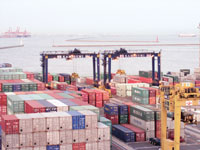
From the past, undergraduate students have taken big part in political struggle in Korea. It was reported that Pres. Roh's victory would have been impossible without the support from younger generation of Korean society, including university students. It can mean university students have higher concerns in political problems, so the Annals asked How much interest do you have in politics? 37.3% of the students selected "normal". "High (16.0%)" and "very high (5.4%)" gathered 21.4% of the respondents, and "low (29.2%) and "very low (9.4%) were chosen by 35.6%. Looking at the difference between male and female, 28.1% of the males belonged to the former, and 31.0% of them were in the latter group. On the contrary, 16.9% of the females selected the former, and 42.9% of them chose the latter. This means males tend to be more concerned about politics than females.
"The president of Korea" can be described as, "CEO (Chief Executive Officer) of the Republic of Korea." Then, among university students, what is regarded as the most important ability of a president? To find student's thoughts about talents of a president, the Annals asked What is the most important quality of a president? 43.7% of the people answered "national economic operational ability." And 17.9% of the respondents chose "propulsive force" "A president must concentrate his or her efforts on national economic problems to be successful." If you look up the information about the achievements of great former presidents of the world, you can see it. This result shows students already have the eye of recognizing the national economic operational ability as the most important quality of a president. It is a positive phenomenon, said Ham Sung Deuk, Prof. Dept. of Political Econ. in Korea Univ.
Before showing the result of the survey 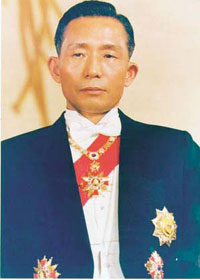
This survey aims to find the quality and leadership of a successful president through the evaluation of presidents. Before opening the result of the evaluation, the Annals would like to explain something about this survey. The purpose of this survey was not to get the exact or professional evaluation, but to find out the cognition of university students to former presidents. And the targets of the evaluation were limited to the "essential" presidents: Rhee Syng-man (1948-1960), Park Chung-hee (1963-1979), Chun Doo-hwan (1980-1988), Roh Tae-woo (1988-1993), Kim Young-sam (1933-1998), Kim Dae-jung (1998-2003) and Roh Moo-hyun (2003- ) Additionally, former presidents were evaluated through six items, "economic achievement", "diplomatic achievement", "policy towards North Korea", "achievement on democratization", "propulsive force" and "morality". The students could select from one of five: "bad", "fairly bad", "middle", "fairly good" and "good".
The evaluation of the former presidents 1;
"Economic achievement"
The first item of the evaluation was "economical achievement". Prof. Ham especially emphasized this by saying; "When somebody evaluates the former presidents, the most important criterions are "economical achievements' and "morality". "According to the result, 80.1% of the respondents gave "fairly good (38.4%)" or "good (41.7%)" to Park Chung-hee. During his term, the economy of the Republic of Korea showed an amazing growth rate. From 1963 to 1972, the average G.N.P. (Gross National Product) growth rate per year was 8.9%, and from 1972 to 1979, it was 9.4%. Additionally, comparing 1961 to 1979, the Korean amount of trade grew 427 times in his 17 years. This achievement could explain why many of the students evaluated him higher in that item.
On the contrary, to Kim Young-sam, 66.5% of the respondents gave "fairly bad (34.7%)" or "bad (31.8%)". Many people remembered that the Korean economy faced economic crisis starting from December 1997, at the closing of his term. Because of his economic misgovernment, the management of Korean economy was taken away by the IMF (International Monetary Fund) from 1998 to 2001. This is why he got such a bad grade on economic achievement. Economic crisis impacted Korean society strongly. In 1998, GDP (Gross Domestic Product) growth rate of Korea recorded -6.9%, and unemployment rate was 7.0%. GNP per person of Korea fell from 11,176 dollars to 7,355 dollars between 1997 and 1998.
Chun Doo-hwan also received poor grades. Related to his economic achievement, 40.2% of the people selected "fairly bad (26.2%)" or "bad (14.0%)". However, during his term, average GNP growth rate per year was 9.1%. Prof. Ham explained about this result; "Among the former presidents, the economic achievements of Park Chung-hee and Chun Doo-hwan were the best; however, many people remember his bad morality, and it would have influenced the evaluation."
The evaluation of the former presidents 2;
"Diplomatic achievement" & "The policy towards North Korea"
The Korean Peninsula is surrounded by four strong countries: the U.S., Japan, China and Russia. Diplomatic policies have decided the fate of Korea, so a leader's diplomatic ability is regarded as an important factor to Koreans. In the survey, the Annals could find out that Kim Dae-jung was with "fairly good (45.7%)" and "good (14.1%)" "His summit conference between North and South Korea should have influenced the students' thoughts. Additionally, his policies of making a relationship with the American President, Bill Clinton probably did, too," explained Chay pyung-gil, Prof. Dept. of Public Admin. In Yousei Univ.
However, 38.7% of the people gave "fairly bad (23.9%)" and "bad (14.8%)" to Rhee Syng-man. In fact, the diplomatic talent of the former Pres. Rhee Syng-man has been evaluated as "fine" by experts. Then why did he get bad grades from many students? Prof. Ham said, "His long term despotism brought devaluation of his diplomatic ability and achievement. In fact, former Pres. Rhee saved Korea from the Communist camp using his diplomatic talent." Prof. Chay explained, "The weak economic achievement of him and despotism lead to this result, and our dim memories of him might have influenced."
For Korean Republic has maintained a tense atmosphere with North Korea, diplomacy with North Korea is more important than with any other countries. In the category, "The policy towards North Korea", Kim Dae-jung was evaluated as outstanding; "fairly good" was 44.9%, and "good" was 22.3%. According to Prof. Chay and Ham, it was affected by his summit conference between North and South Korea. The conference was the first meeting between the two summits of North and South after the division of the Korean Peninsula. Prof. Ham said about former Pres. Kim's summit conference, "Finally, it could not change the relationship between two Koreas." This survey proved Kim Dae-jung's summit conference affected the evaluation of him strongly in the two items, "Diplomatic achievement" and "The policy towards North Korea."
The evaluation of the former presidents 3; 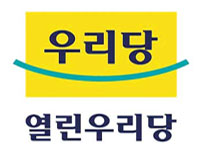
"Achievement on democratization"
The Korean Republic suffered from the long despotism for about 40 years. From Rhee Syng-man to Roh Tae-woo, many Korean people tried to democratize Korea. The students estimated Kim Dae-jung very highly on democratization in this survey; "Fairly good (47.4%)" and "good (13.6%)" was 61.0% in total. "This high grades to former Pres. Kim is related to his democracy movement during military despotism. In fact, his achievement on democratization during his term was not noticeable", Prof. Ham said.
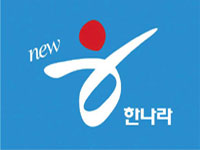 | ||
The evaluation of the former president 4;
"Propulsive force" and "Morality"
Prof. Chay emphasized, "Propulsive force means the president's leadership." Park Chung-hee and Chun Doo-hwan were regarded as the presidents with the most powerful driving force. Former Prof. Park's propulsive force was evaluated good enough to gather 78.7% of the students on "fairly good (33.7%)" and "good (45.0%)". 38.0% of the students gave good grades to Chun Doo-hwan; "fairly good" was 28.8% and "good" was 9.2%. Regarding the result, Prof. Ham said, "They are the symbol of despotism. They had the power of the military. It is negative fact that many people think their oppressive attitudes are same as propulsive force."
Although Park and Chun were evaluated affirmatively in the propulsive force category, neither of them got even average grades on morality. Many people thought Korean presidents have been very weak on morality. Prof. Chay said, "When we evaluated the four presidents from Rhee Syng-man to Roh Tae-woo, many people consider despotism as the standard of morality: On the other hand, for Presidents after Kim Young-sam, the standard is "corruption" of their sons or surrounding people." From Rhee Syng-man to Roh Tae-woo, their evaluations are so poor. According Prof. Chay, it was because those four presidents are the symbol of dictators. The rate of the respondents who selected "fairly good" and "good" on morality to four presidents was like this: Rhee Syng-man was 68.5%, Park Chung-hee was 53.8%, Chun Doo-hwan was 84.2% and Roh Tae-woo was 78.5%.
Among all of the former presidents, only Kim Dae-jung got an affirmative evaluation. 29.9% of the people chose "fairly good (25.1%)" or "good (4.8%)". "In fact, this positive evaluation of Kim Dae-jung cannot be correct because his three sons committed corruption. They trafficked in government posts. I think the result was influenced by the positive P.R. (Public Relations) of the present government. The reason that Pres. Roh protects Kim is that Roh was the successor of Kim Dae-jung in Government party," explained Prof. Ham.
Present President, Roh Moo-hyun
The term of the present president, Roh Moo-hyun began on Feb. 25, 2002. For about two years and a half, many policies have been proposed by him, and the policies are still hot issues in Korea. In this situation, the Annals felt necessity of the interim evaluation to him, so asked students to check on the six items: "economic policies", "diplomatic policies", "the policies toward North Korea," "achievement on democratization", "propulsive force" and "morality".
The students gave negative grades to him. Especially, 63.5% of the respondents chose "fairy bad (43.0%" and "bad (20.5%)" on "economic policies". Prof. Ham and Chay both points out together, "From now, Pres. Roh must strive for the Korean economy. The social and political reforms can be considered secondary to the economic policy, because when a nation is poor, reforms are impossible. Only when a nation is free from having to worry about poverty, social and political reforms can be realized. Pres. Roh is giving priority to things that are less important. I want to say to him, "Please concentrate on the Korean economy!"
Additionally, Pres. Roh's "diplomatic policies" got poor grades; 37.3% of the people selected "fairly bad", and 17.4% chose "bad". "His diplomatic policies lacked consistency and are the reason of this result. His policies about diplomacy do not have a concrete object", said Prof. Ham. Prof. Chay explained, "Many students have anti-U.S. emotions, while Pres. Roh's policies do not. That is why many students did not give high grades to him."
Then, what is the most important problem that Pres. Roh is facing? To figure this out, the Annals asked What is the problem that the present president should concentrate his efforts on?. 63.0% of the respondents chose "stimulating the economy." To the next question, What is the most important job that the next president will have?, 52.5% of the students answered "national economic operational ability." The results of the two questions show that students are emphasizing the importance of the economy. "Nowadays, most students agree that the economic hardship is the most important issue. It means opinion gap between conservatives and progressives are not too big in this prospect," said Prof. Ham and Chay.
The image of the Korean politics 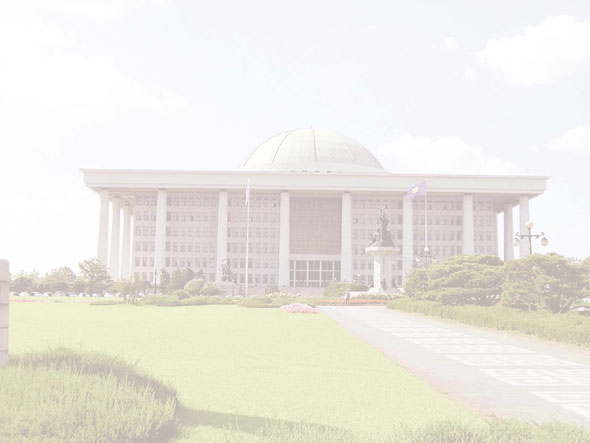
In Korea, politics has progressed by various parties, and they have endeavored to get higher support rate than the other parties. Many people said true progressive and conservative parties do not exist in Korea; however, generally speaking, Uri Party ? the government party and DLP (Democratic Labor Party) are regarded as the progressives. Compared to them, GNP (The Grand National Party) represents conservatives. To figure out the students' supporting rates for each parties, the Annals asked What party do you support now?. "Not support any party" gathered 36.0%, and Uri Party and GNP were chosen by 22.5% and 16.7% each. "Many people do not support any party and they do not trust any party in Korea. Political parties are not showing their clear visions to Korean people," was Prof. Chay's explanation. To the question, What is the most important standard of judgment when deciding your preferable party?, 42.0% of the students replied "political ideas", and 17.6% selected "clarity (How far away a party is from corruption)" Whether a party is progressive or conservative can be the main standard to students. The results show the students prefer progressivism or middle-progressivism to conservatism through the fact that more students support Uri Party and DLP than GNP.
Though the students support several parties, their faith in Korean politics was so little. When the Annals asked What are the two words that comes across your mind of when you think about Korean politics?, the Annals researched frequency of the words, "irregularities and corruption," "political battle" or "fighting". 55.1% of the people wrote one or two of these words on papers. This proves that those words represent the image of Korean politics to the students. Prof. Ham made an additional remark, "In fact, people express their distrust in politics in other countries as well; however, Korean people's negative cognition of politics is too serious. "Distrust in politicians has been the incurable thing in Korean politics. It is time that Korean politicians act for Korean citizens."
Closing notes
Prof. Ham advises young people "Are you doing your best to find only the presidents" negative policies and traits? "Youth in Korea also should make more efforts to see the positive aspects of presidents." Many Koreans and politicians have tried to disparage the former presidents; however, Korean people must develop an attitude of learning something from their positive aspects. By understanding all their positive and negative traits, incoming politicians, whom one day will be one of university students of nowadays, selected among the present university students need to find the way to be a successful politician. A great president will be selected among those successful politicians. For now, Korean people are dreaming of a great leader who can change Korea. Where would he or she be now?
SPOTLIGHT IT IS said Koreans think Park Chung-hee was the great president of Korea. I also think he was the "greatest" one of Korea, while anyone does not regard him as the president who all of us can be proud of. Park Chung-hee was the hero of not Korea, but just only economy of Korea. If Koreans had the former president like Lincoln, any of us may not regard Park Chung-hee as the successful president. Isn't it afraid of not having a good leader who can be respected by all Koreans? <K.I.Y>
Koreans people are living the complex society that anyone ever has not experienced. Republic of Korea is the ship drifting about at the mercy of the waves. To Koreans, a president is the captain of the ferry, "Korea", and eight captains have helped Korean sailors steered the ship for 50 years. Whether they did lead or not, the present Pres. Roh is the commander now. I want that he will remained as the successful politician sincerely not because I like him, but because he is the leader of us. I also expect his role as the bridge to a great president if he cannot be the successful one. If he or she are living now, I would like to shout to the hero of the future called as "one of the greatest presidents of the world." "Hey, we have been dreaming of you for a long time, Mr. President!"

